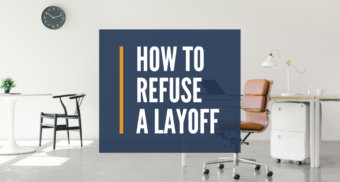Lior Samfiru on employee’s right to disconnect

As more employees continue to work remotely due to health and safety regulations, many have felt pressure to work longer hours. The barrier that existed between personal time and work hours has blurred as home has become the workplace for many. What can employers and employees do to better protect their time?
Lior Samfiru, an employment lawyer and Co-founding Partner at Samfiru Tumarkin LLP spoke with Global News to comment on an employee’s right to disconnect after the workday is done.
“There’s a growing expectation by employers that you will be available, given all this technology available to stay connected,” says Samfiru, “there’s less of a distinction between work time and personal time.”
Samfiru goes on to explain that there are possible solutions. “Setting boundaries with your work hours start with having a discussion with your employer about how you’re feeling.” Samfiru states it is best to express your concerns to your employer in writing. “Let them know what the agreement initially was when you accepted the job.”
Learn More
Right-to-Disconnect Rules for Employees in the Spotlight
For employees who feel their health is at risk, Samfiru said a doctor’s note can be a great tool. “While it won’t apply to everyone, it’s something employers have to accommodate,” he says.
Samfiru also notes that this is a difficult time for job security. “Many employees feel they are between a “rock and a hard place” now, says Samfiru, “they worry if they tell their employer, ‘this is too much,’ that they’ll be replaced with someone else. There’s a lot of people out there looking for work.”
“I think a lot of employers are receptive and understand there are limits. The problem is, there’s no way to force an employer to abide by these understandings,” Samfiru states. Ultimately it will be vital for employees and employers to properly communicate their concerns.




